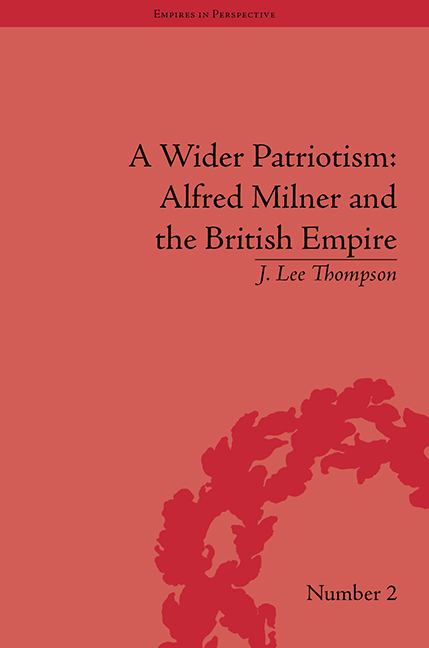Book contents
- Frontmatter
- CONTENTS
- Preface
- Acknowledgments
- Part I A Question about Which I Have Never Been Able to See the Other Side
- Part II Civilian Soldier of the Empire: South Africa
- Part III Constructive Imperialism
- Part IV Imperialism on the Anvil
- 11 The Empire at War
- 12 Imperial War Cabinet
- 13 An Imperial Peace
- 14 Egypt Again: The Milner Mission and After
- 15 Conclusion: A Wider Patriotism
- Notes
- Works Cited
- Index
11 - The Empire at War
from Part IV - Imperialism on the Anvil
- Frontmatter
- CONTENTS
- Preface
- Acknowledgments
- Part I A Question about Which I Have Never Been Able to See the Other Side
- Part II Civilian Soldier of the Empire: South Africa
- Part III Constructive Imperialism
- Part IV Imperialism on the Anvil
- 11 The Empire at War
- 12 Imperial War Cabinet
- 13 An Imperial Peace
- 14 Egypt Again: The Milner Mission and After
- 15 Conclusion: A Wider Patriotism
- Notes
- Works Cited
- Index
Summary
In the first days of the Great War, one ray of light, from Milner's point of view, was the hope that the cataclysm might at least speed imperial union. He commiserated with a sympathetic correspondent in New Zealand, to whom he recommended the Round Table, that he thought in theory ‘the majority of thinking men agree with us, but as soon as we begin to try and put our principles into practice, the greatest confusion arises, and in the end nothing or very little is done. Such at least has been the experience of past years. Whether the tremendous crisis through which the Empire is at this moment passing will result in compelling us to take practical steps towards an effective Imperial union is another question. I hope it may. If it did, I think all the loss and suffering would have been a price worth paying.’ Real steps toward the sort of cooperation Milner envisioned would not occur until the fall of the Asquith Government, but before the end of 1914, New Zealand and Australia would be vying with Britain's ally Japan for control of the German possessions in the Pacific. The first soldier in British service to fire a round in the Great War, on 12 August 1914, in fact was not in Europe or the Pacific, but Regimental Sergeant-Major Alhaji Grunshi of the West Africa Frontier Force in Togoland, whose seizure from Germany would be the first Anglo-French victory of the war.
In Europe, the advance of the German Army to the outskirts of Paris became the most important development. Milner recorded in his 14 September diary ‘London is ringing with rejoicing at the victory of the Allies in the great battle on the Marne last week’. To his Boer War compatriot F. J. Henley in South Africa, Milner confided that the British Army must have lost at least 40,000 killed, wounded, and missing ‘a tremendous proportion out of 150,000 men or thereabouts – in a single month.’
- Type
- Chapter
- Information
- A Wider PatriotismAlfred Milner and the British Empire, pp. 150 - 159Publisher: Pickering & ChattoFirst published in: 2014



